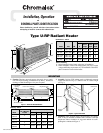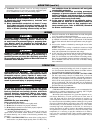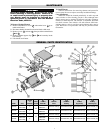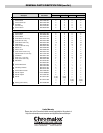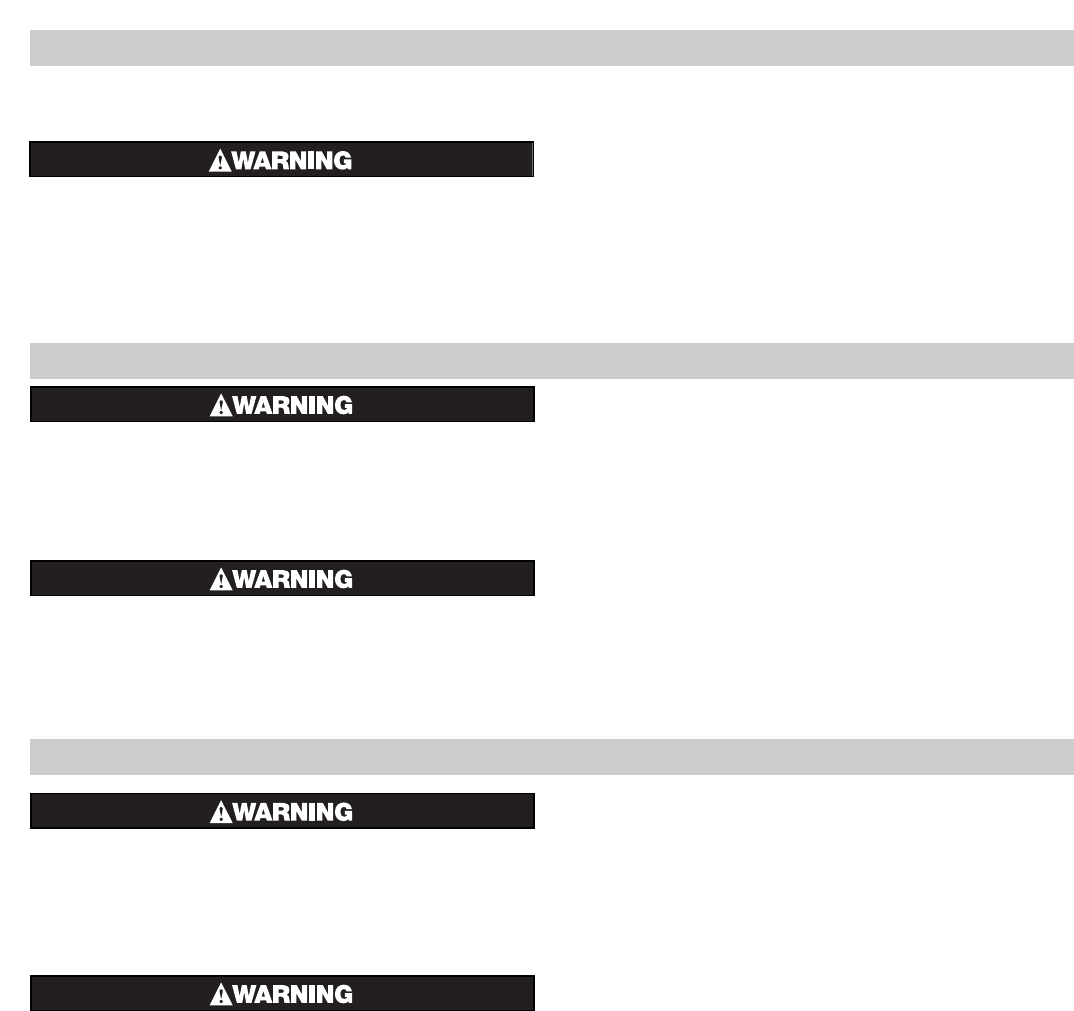
FIRE/EXPOSION HAZARD. This heater is not
intended for use in hazardous atmospheres where
flammable vapors, gases, liquids or other com-
bustible atmospheres are present as defined in
the National Electrical Code. Failure to comply can
result in personal injury or property damage
.
The system designer is responsible for the safety
of this equipment and should install adequate
back-up controls and safety devices with their
electric heating equipment. Where the conse-
quences of failure could result in personal injury
or property damage, back-up controls are essen-
tial.
CAUTION: For your own safety –
Before energizing this heater:
1. Be sure all electrical connections are tightly made.
2. Be sure that all conductors are properly insulated.
3. Be sure that the terminal cover has been properly replaced.
A. Controlling Radiant Intensity –
Standard Radiant Panels are built to operate at 40 watts per
square inch on the element sheath. When it is desired to reduce
the radiant intensity, one or more of the following methods may
be used.
1. INPUT CONTROLLERS These motor-driven cycling devices
can be used to vary heater output capacity from 4 to 100%. They
are usually connected in holding coil circuit of magnetic contac-
tors. See Chromalox Radiant Heater Manual for further informa-
tion regarding Input Controllers and Contactors.
2. SOLID STATE THYRISTOR POWER CONTROLLERS
For best non-contact control of radiant heat, a Series #6
Chromalox Thyristor Power Controller with manual potentiome-
ter setting is recommended. Truly proportional output from 0-
100% can be easily dialed-in to suit the particular product or
process requirements. The Series #6 panels are pre-engineered,
pre-packaged assemblies in an enclosure with circuit disconnect
provided and ready for installation.
B. Maximum Ambient Temperatures –
CHROMALOX Radiant Panels are not recommended for
applications in ambient temperatures exceeding 450˚F. Higher
ambient temperatures mean shorter heater life.
Maximum work temperature in a given time depends on sev-
eral factors: Reflectivity of work, specific heat of work, mass of
work, kW input and losses from oven and time of exposure. As
work temperature increases, the work loses heat by radiation and
by convection to the surrounding ambient. Although it it a general
principle of Radiant Heater application that work temperature
conventionally exceeds ambient temperature, in cases where
extremely high work temperatures are desired, it is necessary to
enclose the heaters in order to increase the ambient temperature.
If evaporation of a liquid is desired as a result of increasing work
temperature, it is necessary to provide ventilation air in order to
carry away the evaporated liquid. Under carefully engineered cir-
cumstances, a maximum work temperature of 600˚F may be
attained.
2
MOUNTING (cont’d.)
WIRING
4. Ventilation: Where solvents, water etc. are being evaporated
from work in process, it is necessary to provide substantial quanti-
ties of ventilation air to carry away the resulting vapors.
FIRE HAZARD: Since Radiant heaters are capable
of developing high temperatures, extreme care
should be taken to:
A. Keep combustible materials at least 6” away
form sides and back of heater housing and its
supporting brackets and spaced far enough in
front of heater (heating element side) so ther-
mal radiation from the elements will not ignite
combustible materials.
B. If combustible materials are being processed,
stoppage of process should initiate immediate
heater shutdown and interception of residual
heat from radiant heaters (use radiation baffles
or move heaters away from work).
C. In the case of solvents of an explosive nature,
ventilation air must be in sufficient volume to
dilute the solvent vapor so that explosive mix-
tures cannot occur, refer to NFPA 86, Standard
for Ovens and Furnaces.
ELECTRIC SHOCK HAZARD. Disconnect all power
before installing or servicing heater. Failure to do
so could result in personal injury or property dam-
age. Heater must be installed or serviced by a
qualified person in accordance with the National
Electrical Code, NFPA 70.
ELECTRIC SHOCK HAZARD. Any installation
involving electric heaters must be performed by a
qualified person and must be effectively grounded
in accordance with the National Electrical Code to
eliminate shock hazard.
1. Electrical connections to the Radiant Panel are made through the
1-1/4” dia. opening in the terminal housing.
2. Wiring should be run in flexible or rigid metal conduit and must
be installed in accordance with the requirements of the National
Electric Code and such other local requirements as may be applic-
able.
3. Access to the busbars is obtained by removing the screws in the
terminal box cover.
NOTE: Where circuit wiring is installed in locations of high
ambient temperature, conductors should be insulated in accor-
dance with requirements for temperature and voltage.
4. A 9/32” dia. hole is provided at each end of the busbar for the pur-
pose of connecting the circuit wiring to the type U-RP radiant
panel. Use 1/4-20 bolts, nuts and lockwahsers for making connec-
tions. It is suggested that crimp-on connectors with a hole for 1/4”
bolt be attached to the ends of circuit wires to facilitate making
these connections.
OPERATION



